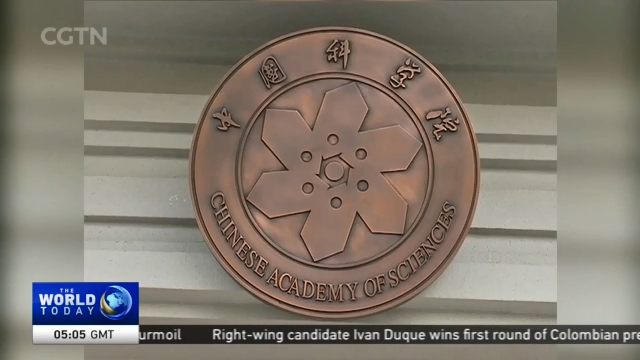
13:43, 28-May-2018
General Assembly of Academicians: Introduction to China's academician system
02:31

China is holding its biannual assembly of academicians in Beijing from Monday to Friday. President Xi Jinping has delivered a speech at the opening ceremony. This year's event aims to further China's innovative abilities and as world-leading tech power. The academician system has played an important part in attracting and retaining talents from home and abroad. CGTN's Natalie Pang has more.
The 19th General Assembly of the Academicians of the Chinese Academy of Sciences, and the 14th General Assembly of the Academicians of the Chinese Academy of Engineering will jointly take place this week. The two academies will deliver work reports, elect new members and present awards.
Over 1,300 academicians are expected to attend this year's event. They are scientists and technologists with top honorary titles, who have made outstanding contributions to the country's development. They explore areas such as science and technology, economics, people's well-being, national defense and the decision-making of the government.
The academician system has made major contribution to China's talent pool.
The current system dates back to the "academic divisions committee" in the Chinese Academy of Sciences, or CAS, which was founded in 1955.
And in 1993, the State Council approved committee members being bestowed with the title of "academician". This title was later also conferred on members of the Academy of Engineering. New academicians of both institutes are elected every two years. The academies also introduced their senior academician policy in 1998 to honor members over 80 years old. Opportunities have also been open to foreign candidates since then.
Many other countries adopt the academician system. Historically, the British model is more rooted in scientific argument, while the French system typically involves a lot more vested funding interests and political purpose. The US National Academy of Sciences, serves as the federal government's scientific consultancy. It receives no compensation for its services. The Russian Academy of Sciences is mainly supported by the government's grant, social and other research fundings. The Royal Swedish Academy of Sciences is in charge of the selection and awarding of the Nobel Prize.
China's academician system still requires improvements. There have been heated discussions on its selection procedures, financial rewarding and age limits. Reform of the academician system is to be discussed during this year's assembly.

SITEMAP
Copyright © 2018 CGTN. Beijing ICP prepared NO.16065310-3
Copyright © 2018 CGTN. Beijing ICP prepared NO.16065310-3